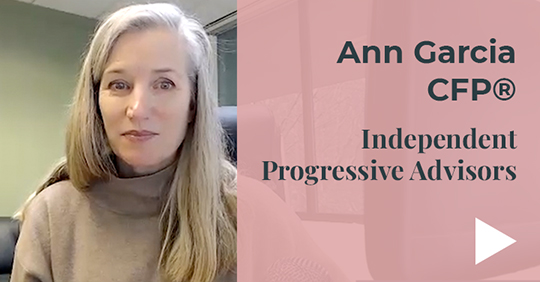
There’s a lot of buzz around FAFSA simplification and how the new Free Application for Federal Student Aid will change financial aid eligibility. For many families, the changes will increase their eligibility for financial aid, specifically the expansion of Federal Pell Grant eligibility to lower-income families. Other families might see a change in their financial aid beyond the Pell Grant, with some eligible for more aid and others less.
According to Phillip Levine, professor of economics at Wellesley College, founder and CEO of MyIntuition, as well as a CollegeWell board member, the change in aid eligibility largely hinges on parent income, the number of siblings in college, and the institution the student is attending.
In his analysis with Jill Desjean, senior policy analyst at the National Association for Student Aid Administrators (NASFAA), families making around $220,000 with no children in college could be eligible for additional need-based financial aid at private colleges that typically have a higher sticker price, with no change in eligibility at public colleges. Another family in the same income range with multiple children in college could see a significant decrease in aid eligibility compared to how eligibility was previously determined. Students attending institutions that require them to complete the CSS Profile are unlikely to experience any change in their financial aid awards.
But there are benefits from the pending changes that all families get to enjoy, like a much shorter application. Starting with the 2024/2025 FAFSA, the number of questions will be reduced by two-thirds, and more families will be able to import financial data directly from their federal tax returns, streamlining the process.
We know families have questions about the new FAFSA simplification, so we’re tapping experts from several colleges in our 529 plan.
Timing this year
My child is applying to college in the fall through early action, but the FAFSA isn’t going to be available until December this year. How will we know about our financial aid award before we must decide?
Normally, the FAFSA is available starting October 1, but given all the changes this year, the 2024/2025 FAFSA is now expected to come out in December. Remember that the FAFSA is the form to apply for federal and most state financial aid, but if you are applying to a college that also requires the CSS Profile — and many private colleges do — that form will still be available starting October 1. And it will give colleges enough information so you can get an estimation of financial aid while you wait to complete the FAFSA.
If any of your colleges only use the FAFSA, the good news is that you usually have until May 1 to decide, with the exception of early decision — plenty of time to complete the FAFSA and review financial aid awards. You may also learn about merit scholarships that are based on the admission application alone.
My advice is don’t wait to apply for admission before completing your financial aid applications. Complete both as soon as you can. They are separate processes.
Julie Wickstrom, Assistant Vice President of Financial Aid and Employment, Boston University
Financial aid formula
Does the name change from EFC to SAI impact aid eligibility?
The formula determining a family’s financial need stays pretty much the same. It really is just that — a name change.
The problem with the EFC is that it’s confusing. If you completed the FAFSA and received an EFC number, you would expect to pay that amount for college. But it’s never the exact amount families pay due largely to funding levels at different colleges. The new name, Student Aid Index (SAI), is a more accurate description of what the formula does — a number used to determine eligibility for need-based financial aid.
Steve Lindley, Director of Financial Aid, St. Olaf College
Multiple kids in college
I heard the FAFSA is eliminating the deduction for multiple children in college. I have two children in college now. Does this mean my aid eligibility will be cut in half?
In previous years, the parent contribution was evenly divided by the number of children in college, but that is going away with the 2024/2025 FAFSA. This change is expected to have a big impact on many families, but there are other changes that will help offset it.
One change is an increase in the income protection allowance, the amount of parent income that is protected. The amount increases with the number of family members in your home. Another change is the treatment of pre-tax retirement contributions. The FAFSA will no longer treat these contributions as income, which could reduce total available income significantly.
It’s important to note that if one or both of your children attend a college that uses the CSS Profile, that form does consider multiple children in college and is often used to make holistic decisions about financial aid packages.
Complete the applications as soon as you can and don’t hesitate to reach out to the financial aid office at each college. Our goal is to help provide a smooth transition to the new FAFSA and make this as seamless as possible for families.
Adrienne Montgomery, Director of Financial Aid, Xavier University
Who’s completing the form
In the case of divorced parents, are there any changes to who needs to complete the FAFSA?
Yes. Previously, the form instructed students to report information about the parent they lived with most during the preceding 12 months. Starting with the 2024/2025 FAFSA, the parent who provided the greater portion of the student’s financial support will be required to complete the FAFSA, and as before, if that parent is remarried, the stepparent’s financial information is also required. For some families, the parent who completes the form may not change.
Colleges, especially private colleges that have very generous financial aid packages, may require additional forms, like the CSS Profile, and require that the student provide information about both sets of parents.
Melissa Smurdon, Director of Financial Aid, Butler University
Parent assets
Is there anything we should do differently with assets to prepare for the new application?
The treatment of parent and student assets in the formula will remain consistent. And the good news is that these assets have little impact on the formula. The major change is what needs to be reported as an asset.
Child support will be reported as a parent asset opposed to parent income. Since the formula is largely income driven — meaning income counts more towards the SAI than assets — this is favorable news for some families. On the other hand, small family-owned businesses and family farms will be reported as parent income. Still, it’s only the net value of the business or farm, minus debts. The most the value will be assessed is 5.6%.
There is some great news about the treatment of 529 plans. A 529 account owned by someone other than a parent is no longer reported on the form and doesn’t impact eligibility.
Libby Fletcher, Interim Co-Director of Financial Aid and Operations, Colorado College
Other important changes
There are some other positive changes beyond the new FAFSA simplification that are required to be in effect for the 2023-2024 academic year.
To increase transparency around costs, colleges are now required to list all Cost of Attendance (COA) items on their website and make them available anywhere the site describes tuition and fees. The COA varies from college to college and is essentially the all-in price for attending the institution for one year. It includes tuition and fees, room and board (now referred to as food and housing), books and supplies, transportation, and personal expenses. Colleges are also required to include miscellaneous costs necessary to attend their institution, like course materials, equipment, licenses or certifications, and reasonable food and housing allowances. Typically, a higher COA means more eligibility for need-based financial aid – and, yes, you can get financial aid to help cover all these expenses.
Financial aid offices have had the ability to use professional judgment and adjust a student’s financial aid award under special circumstances, but starting with the 2023-2024 academic year, colleges are now required to ensure families know they can appeal financial aid. So, if a parent loses their job, and their financial situation changes from when they completed their financial aid applications, it’s important they understand that the college can make adjustments.











